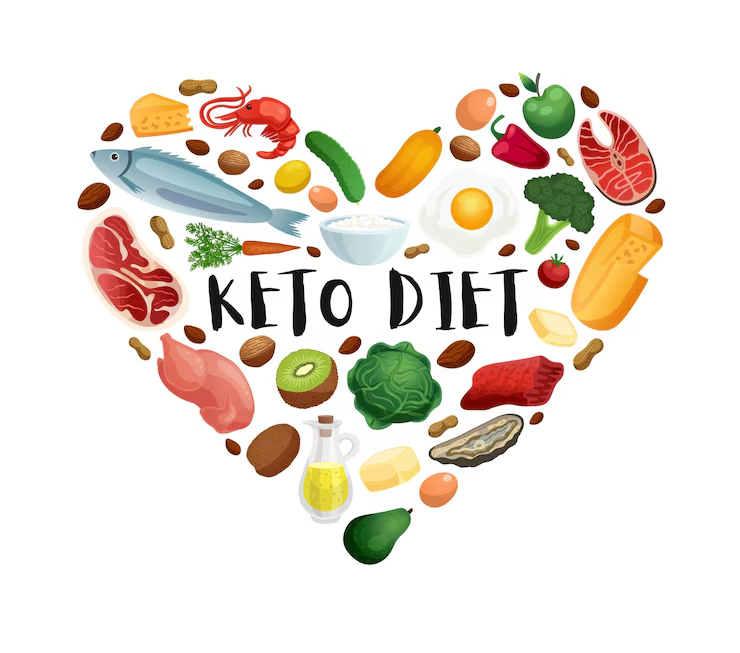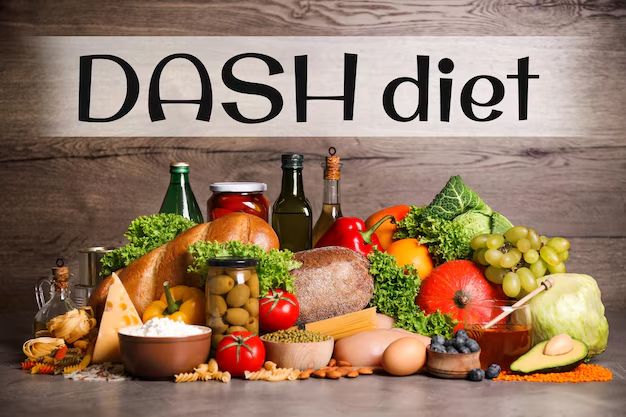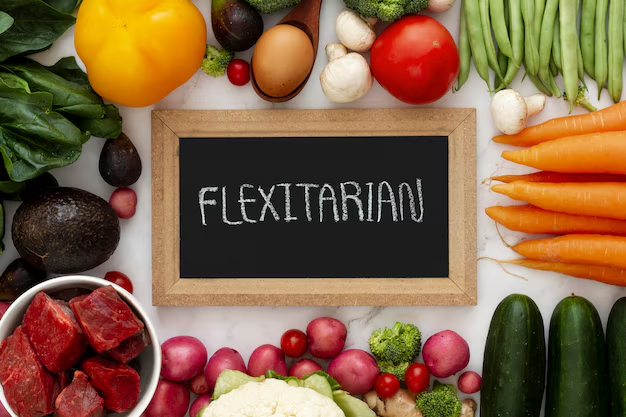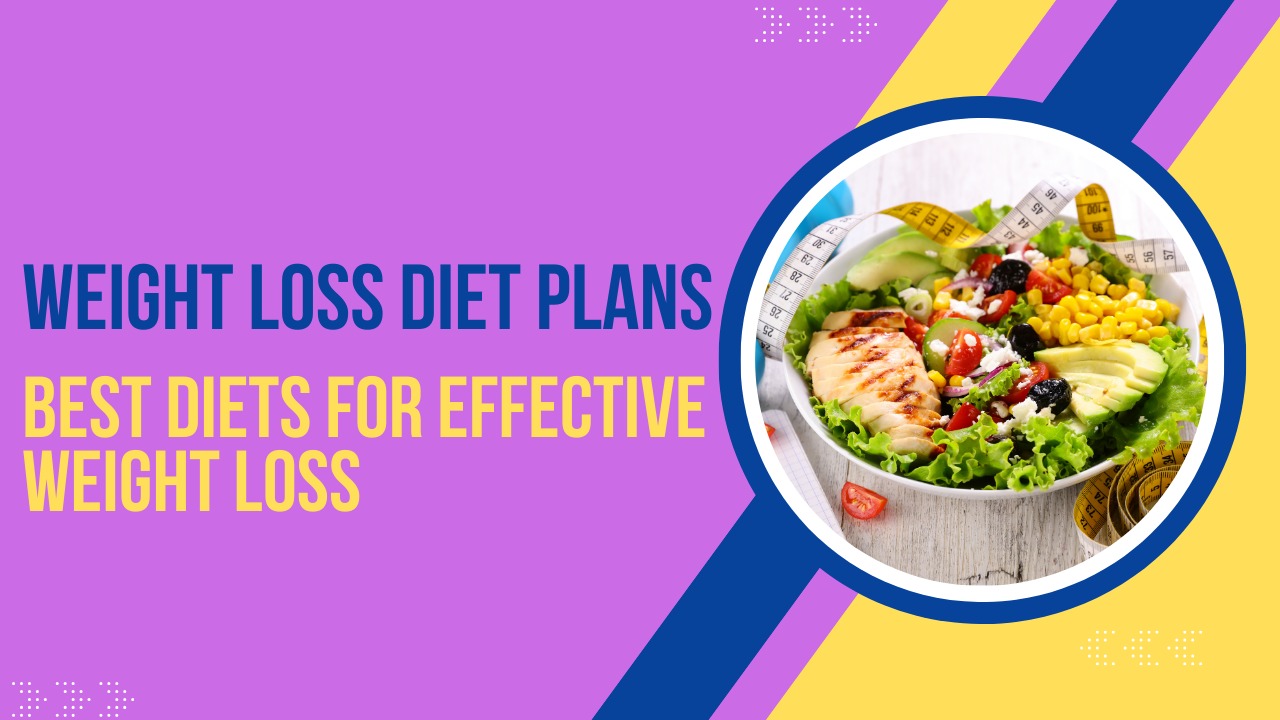Weight loss is a common goal for many people who want to improve their health, feel better, and gain more confidence. Shedding extra weight can lower the risk of several health problems such as heart disease, type 2 diabetes, and high blood pressure. However, reaching and maintaining a healthy weight is not always easy and requires a balanced approach.
One of the key factors in successful weight loss is choosing the right weight loss diet plans. Since everyone’s body and lifestyle are different, it’s important to find a plan that fits your personal needs and health goals. A good diet plan not only helps you lose weight but also gives your body the nutrients it needs to stay strong and healthy.
In this article, we will first look at why losing weight is important for your overall health. Then, we will highlight the top 10 weight loss diet plans that are known to help people lose weight safely, improve their health, and maintain lasting results.
Understanding Weight Loss: The Basics

What is Weight Loss ?
Weight loss means reducing body weight, mainly by burning fat. The body needs a certain amount of calories each day to function properly. When you eat more calories than your body needs, the extra calories are stored as fat. Over time, this can lead to weight gain. On the other hand, if you eat fewer calories than your body requires, it starts to use the stored fat for energy. This process helps you lose weight.
Many people use weight loss diet plans to guide their eating habits and reduce calorie intake. These plans focus on healthy foods, portion control, and balanced nutrition to help the body burn fat more effectively and support long-term weight loss goals.
Why is Weight Loss Important for Health ?
Weight loss is crucial for various health reasons. The extra weight we carry can increase the risk of developing numerous chronic conditions, such as heart disease, diabetes, hypertension (high blood pressure), and even certain cancers. Additionally, excess weight can lead to joint problems, low energy levels, and decreased mobility.
Here are some of the key benefits of losing weight and maintaining a healthy weight:
Reduced Risk of Chronic Diseases: Following effective weight loss diet plans can greatly reduce the risk of developing serious health conditions such as heart disease, stroke, type 2 diabetes, and other metabolic issues. Losing weight supports a healthier body system overall.
Improved Heart Health: Maintaining a healthy weight through smart weight loss diet plans helps lessen the workload on the heart. This leads to better blood flow, lower blood pressure, and reduced cholesterol levels, all of which are important for heart health.
Better Sleep: Many people find that weight loss improves their sleep quality. With the help of weight loss diet plans, reducing excess fat can ease sleep apnea and snoring, leading to deeper, more restful sleep.

Enhanced Joint Health: Carrying extra weight puts stress on joints. By following weight loss diet plans, individuals can lose weight and reduce pain or discomfort in joints, especially in the knees, hips, and back.
Increased Energy Levels: Healthy eating habits from good weight loss diet plans help the body function more efficiently. As a result, many people experience increased energy and stamina for daily tasks and physical activity.
Mental and Emotional Health Benefits: Achieving a healthy weight through weight loss diet plans can boost self-confidence, improve mood, and support a more positive mindset, helping people feel better inside and out.
Improved Mobility: With less weight to carry, movement becomes easier. Weight loss diet plans support gradual fat loss, making walking, exercising, and other activities more comfortable and enjoyable.
Top 10 Weight Loss Diet Plans
When it comes to weight loss, the right diet plan can make all the difference. Below are the top 10 most effective and popular weight loss diet plans that have proven results:
The Mediterranean Diet
The Mediterranean diet comes from the traditional eating habits of countries along the Mediterranean Sea, including Greece, Italy, and Spain. This diet focuses on fresh fruits, vegetables, whole grains, nuts, seeds, olive oil, and lean proteins like fish and poultry. It also encourages moderate portions and mindful eating, making it easier to maintain a healthy weight.
Among many weight loss diet plans, the Mediterranean diet stands out because it supports both weight loss and long-term health. It’s not just about cutting calories but about choosing nutritious, natural foods that keep you full and satisfied. This balanced approach helps people lose weight gradually while also reducing the risk of heart disease, diabetes, and other health problems.
Healthy fats from olive oil, nuts, and seeds
Fresh fruits and vegetables
Whole grains
Lean protein sources, particularly fish and seafood
Moderate amounts of dairy
Minimal red meat and processed foods
Why It’s Effective: The Mediterranean diet is rich in heart-healthy fats and antioxidants that promote fat loss, improve heart health, and reduce inflammation. Studies have shown that this diet can significantly reduce the risk of heart disease, help with weight management, and support overall health.
The Keto Diet

The ketogenic (Keto) diet is a low-carbohydrate, high-fat eating plan that shifts the body’s energy source from carbs to fat. When you reduce your carb intake, your body begins to burn fat for fuel instead, which leads to the production of ketones. These ketones are then used by the body as an alternative energy source.
As one of the more popular weight loss diet plans, the keto diet is known for helping people lose weight quickly by promoting fat burning. It also helps reduce hunger and improve focus for some individuals. Many people choose the keto diet because it offers a structured way to limit carbs and encourage the body to rely on stored fat for energy.
Why It’s Effective: By drastically reducing carbohydrate intake, the body begins to rely on stored fat for energy, leading to rapid weight loss. This diet has been shown to help with fat loss, improve insulin sensitivity, and even manage conditions like epilepsy and type 2 diabetes.
The Paleo Diet
The Paleo diet, often called the “Caveman Diet,” is based on the idea of eating like our ancient ancestors. It encourages consuming whole, natural foods such as meat, fish, fruits, vegetables, nuts, and seeds—foods that could be hunted or gathered. Processed foods, grains, dairy, and refined sugars are typically avoided in this diet.
Among popular weight loss diet plans, the Paleo diet stands out for its simple, back-to-basics approach. By removing processed items and focusing on clean eating, it helps reduce calorie intake and improve digestion. Many people find it easier to lose weight and feel more energized while following this plan, making it a useful choice for those looking to improve their overall health and manage weight.
Lean meats
Fish

Eggs
Fruits
Vegetables
Nuts and seeds
Healthy fats (such as olive oil)
Why It’s Effective: By eliminating processed foods, grains, and dairy, the Paleo diet encourages the consumption of nutrient-dense, whole foods that support fat loss and muscle retention. It’s a whole-foods-based approach that can lead to significant weight loss and improved health markers.
The Intermittent Fasting Diet
Intermittent fasting (IF) is an eating style where people alternate between times of eating and fasting. Instead of focusing on what foods to eat, it focuses on when to eat. Common methods include fasting for 16 hours and eating during an 8-hour window, or fasting for 24 hours once or twice a week.
As one of the flexible weight loss diet plans, intermittent fasting helps reduce overall calorie intake without strict food restrictions. It can support fat burning, improve metabolism, and may even boost energy and focus. Many individuals find this method easier to follow than traditional diets, making it a popular choice for those looking to lose weight and improve their health naturally.
Common methods include:
16/8 method: Fasting for 16 hours, eating within an 8-hour window.
5:2 method: Eating normally for 5 days and reducing caloric intake for 2 days.
Alternate-day fasting: Alternating between fasting days and eating days.
Why It’s Effective: Intermittent fasting helps reduce calorie intake by limiting the eating window and promotes fat burning through prolonged fasting periods. It also enhances metabolic flexibility, improves insulin sensitivity, and supports cellular repair processes.
The DASH Diet (Dietary Approaches to Stop Hypertension)
The DASH (Dietary Approaches to Stop Hypertension) diet was first created to help people reduce high blood pressure through healthy eating. It focuses on foods rich in nutrients like potassium, calcium, and magnesium, while limiting salt, red meat, and added sugars. It encourages fruits, vegetables, whole grains, lean proteins, and low-fat dairy.

Over time, the DASH diet has also become one of the most recommended weight loss diet plans. Its balanced and flexible approach helps people lose weight while improving heart health. By promoting nutrient-rich, low-calorie foods, it supports healthy weight management and long-term wellness. This makes it a great option for individuals who want to lose weight without following a strict or extreme diet.
Fruits
Vegetables
Whole grains
Lean proteins (such as chicken, fish, and legumes)
Low-fat dairy
Reduced sodium intake
Why It’s Effective: The DASH diet encourages a balanced, nutrient-dense eating plan that reduces calorie consumption while promoting fat loss. It’s particularly effective for individuals with hypertension and those looking to lose weight in a sustainable way.
The Whole30 Diet
The Whole30 program is a 30-day clean-eating challenge that aims to reset your body by cutting out foods that may cause inflammation or digestive issues. During this time, participants avoid sugar, dairy, grains, legumes, and processed foods, focusing instead on whole foods like vegetables, fruits, meats, and healthy fats.
While not originally made for weight loss, Whole30 has become one of the popular weight loss diet plans due to its focus on clean eating and removing unhealthy foods. Many people report weight loss, improved energy, better sleep, and fewer cravings. It helps individuals become more aware of how certain foods affect their body, making it a useful tool for both short-term results and long-term healthy habits.
During the 30 days, participants cut out:
Sugar (including added sugars and artificial sweeteners)
Grains (wheat, rice, oats, etc.)
Dairy products
Legumes
Alcohol
Processed foods
Why It’s Effective: Whole30 helps reset your body by eliminating foods that can cause inflammation, digestive issues, or cravings. The diet encourages whole, unprocessed foods that are naturally low in calories and rich in nutrients.
The Flexitarian Diet
The Flexitarian Diet is a flexible, plant-based eating plan that emphasizes eating mostly plant-based foods like vegetables, fruits, legumes, and whole grains. However, it still allows for occasional consumption of meat and animal products, making it easier to follow for those who enjoy a more varied diet.

As one of the popular weight loss diet plans, the Flexitarian Diet encourages healthier eating habits while offering flexibility. By focusing on plant-based meals, it helps reduce calorie intake, improve digestion, and support overall health. Many people find it an appealing option because it allows for a balanced, sustainable approach to weight loss without completely eliminating their favorite foods.
This diet includes:
Fruits and vegetables
Whole grains
Plant-based proteins (such as beans, tofu, and lentils)
Nuts and seeds
Why It’s Effective: The Flexitarian Diet encourages a plant-based approach, which is typically lower in calories and rich in fiber. This can help with weight loss, reduce inflammation, and improve overall health while still providing flexibility for meat consumption.
The Volumetrics Diet
The Volumetrics Diet focuses on eating foods that are high in water and fiber, such as fruits, vegetables, and soups. These foods are low in calories but help you feel full, making it easier to reduce overall calorie intake without feeling hungry. The diet encourages portion control and emphasizes nutrient-dense meals.
As one of the effective weight loss diet plans, Volumetrics helps people lose weight by promoting healthy, satisfying foods that keep hunger at bay. By filling up on foods that are naturally low in calories but high in volume, individuals can eat more while still cutting calories. This makes it a practical and sustainable approach to weight loss for long-term success.
This includes:
Fruits
Vegetables
Soups
Whole grains
Lean proteins
Why It’s Effective: By focusing on foods that are low in calories but high in volume, the Volumetrics Diet helps you control portion sizes and avoid overeating. It’s effective for weight loss because it promotes fullness while reducing calorie intake.
Conclusion

In conclusion, choosing the right weight loss diet plan is fundamental to achieving lasting health and fitness results. While there are numerous diet options available, it’s essential to select one that aligns with your individual preferences, lifestyle, and health goals. Whether you prefer the Mediterranean diet for its focus on heart-healthy fats or the Keto diet for its emphasis on fat-burning through low-carb intake, the key to success lies in consistency and choosing a plan you can maintain long-term.
Along with following a well-structured weight loss diet plan, regular physical activity is crucial for maximizing weight loss and maintaining overall health. Incorporating exercises like walking, strength training, or cardio can help speed up the fat-burning process, improve muscle tone, and boost metabolism. A combination of a balanced diet and active lifestyle not only supports weight loss but also enhances energy levels and improves mental well-being.
Ultimately, the most effective weight loss diet plans are those that promote sustainable, healthy eating habits and foster positive lifestyle changes. It’s important to focus on overall wellness rather than seeking quick fixes or extreme diets. Before starting any new diet, consulting with a healthcare provider is highly recommended to ensure the plan is safe and appropriate for your specific needs. With dedication and the right approach, you can achieve lasting weight loss and enjoy a healthier, more fulfilling life.
FAQs
- What is the best weight loss diet plan for beginners ?
The best weight loss diet plan for beginners is one that is easy to follow, balanced, and sustainable. The Mediterranean Diet and DASH Diet are excellent choices for those starting out. Both emphasize whole, nutrient-dense foods and can be easily adapted to fit different lifestyles. These diets encourage healthy eating habits without drastic restrictions, making them ideal for beginners. - How can I choose the right weight loss diet plan for my body type ?
Choosing the right weight loss diet plan depends on your individual body type, lifestyle, and health conditions. For example, if you have a lot of weight to lose quickly, the Keto Diet might be effective. If you’re looking for a more balanced approach, the Mediterranean Diet or Flexitarian Diet may work better. It’s always best to consult with a healthcare professional or dietitian to tailor the plan to your specific needs. - Are low-carb diets like Keto effective for long-term weight loss ?
While low-carb diets like Keto can lead to rapid weight loss, they may not be sustainable or suitable for everyone in the long term. Many people experience initial weight loss due to reduced carbohydrate intake, but it’s important to find a diet that promotes long-term health and is easy to maintain. For lasting weight loss, focus on balanced, nutrient-dense foods and avoid restrictive diets that are difficult to maintain. - Can intermittent fasting help with weight loss ?
Yes, intermittent fasting has been shown to be an effective weight loss method for many people. By cycling between periods of eating and fasting, the body can burn stored fat for energy, leading to weight loss. However, it’s important to approach fasting cautiously and ensure that you’re still consuming enough nutrients during eating windows. Consulting with a healthcare provider before starting an intermittent fasting plan is recommended. - How quickly can I expect to see results from a weight loss diet ?
The speed at which you see results from a weight loss diet plan varies depending on several factors, including your starting weight, metabolism, and how closely you follow the plan. On average, you can expect to lose 1-2 pounds per week with a healthy, sustainable diet. Rapid weight loss is often unsustainable and can lead to muscle loss or nutrient deficiencies. The key to successful weight loss is consistency and making long-term lifestyle changes.


